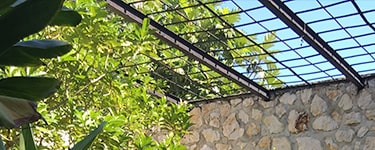Blog

The Need for Solar Water Wells
In developing countries where many villages are off the electrical grid, and fossil fuels for generators are too expensive, water wells operated by solar powered pumps are the only viable alternative to gaining a clean, healthy water supply. Because the water is so far underground, these wells need pumps, powered by solar energy, to bring up the water.
Solar water pumps are specially designed to capture the sun’s energy using special panels called photovoltaic panels. A group of solar panels located on or nearby the storage tanks, collect the sun’s energy, which is converted into electrical power to operate these wells. When the sun is shining, the system is pumping, when the sun is not shining, the system is off—simple.
A solar-powered well with a 15,000-20,000 gallon holding tank can provide enough water to sustain 3,000 to 4,000 people. The average cost of a 200-foot deep solar-powered well is $35,000. This cost can increase if it is necessary to dig the well deeper than 200 feet, if the area where the well is being built is more remote or isolated or if water is not found on the first drilling attempt.
Each of Barco’s Nightingales Foundation’s solar well projects includes the construction of the holding tank and the installation of solar panels on the top of the tank as well as the creation of a network of pipes and clean water filling stations throughout a village. When operational, the solar panels gather energy from the sun and power the pumps, which fill the tank with water. Once filled, water is dispersed through the pipes to the community water stations. Completing a well from start to finish takes an average of six to 12 weeks.
Why solar:
Compared with windmills, solar wells are less expensive, and much easier to install and maintain. They provide a steadier supply of water, and can be installed in valleys and wooded areas where wind for windmills is poor. In addition, most solar wells last between 20-30 years and are very low cost to keep working.
Add to the long life of the system, the low maintenance needed, solar powered water wells in developing countries and remote villages provide the best method of obtaining clean water for the communities.
By building solar wells filled with fresh, clean water, in developing nations, such as the projects sponsored by Barco’s Nightingales Foundation in Haiti, families and children in these communities have a much better chance of completing their education and growing into healthy adults.
